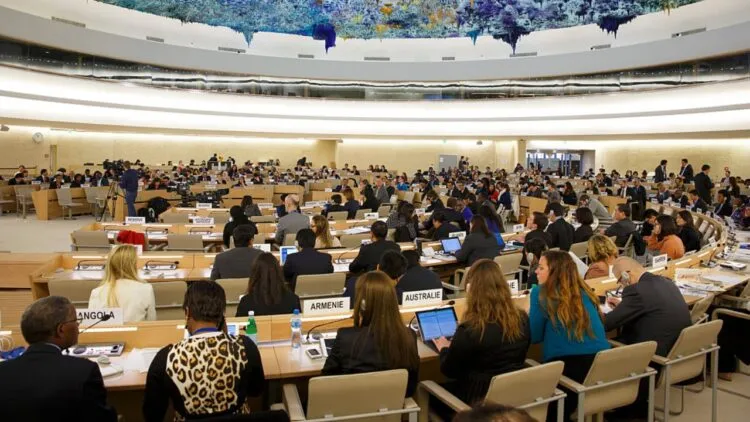The United Nations Human Rights Council granted a special rapporteur permission to follow Russia’s repression of dissent for the first time in the body’s history.
On the recommendation of a significant portion of the European Union, the Council’s 47 member states adopted a resolution in this regard with 17 votes. Six nations, including China, Cuba, and Venezuela, voted against the resolution, while 24 countries abstained.
This is the first text referencing the country’s human rights situation, particularly the political opposition, to specifically mention Moscow.
Before the voting, Gennady Gatilov, the Russian ambassador to the UN in Geneva, condemned the text and charged that “Western nations are abusing the council for political ends.”
Moscow, which left the council after the UN General Assembly decided to expel it for its invasion of Ukraine a few months ago, has observer status and is so permitted to address the council.
The resolution, which was passed on Vladimir Putin of Russia’s 70th birthday, calls for the appointment of a special rapporteur to keep an eye on the “status of human rights” for a whole year.
“Collect, analyse, and evaluate relevant information from all stakeholders, including Russian civil society, both inside and outside the nation,” the Special Rapporteur will be required to do.
When introducing the document to the council, Luxembourg’s ambassador Marc Bechler stated, “We have been watching a persistent deterioration in the human rights situation in the Russian Federation, which has escalated in recent months.”
“Recent draconian regulations intended to silence independent media and undesirable organisations, harsh punishments for anyone who questions the administration, or the high number of persons imprisoned in connection with demonstrations are some recent examples of a policy of systematic repression,” he continued.
The Nobel Peace Prize was given on Friday to Ukrainian non-governmental group “Center for Civil Liberties,” Russian nonprofit “Murial,” and imprisoned Belarusian campaigner Alice Bialyatsky. It was a symbolic award given in the middle of the conflict in Ukraine.
Who can honestly deny that Russia’s human rights situation is currently gravely deteriorating? The council was informed by French Ambassador Jerome Bonaphon.
The Nobel Peace Prize was given to two Russian, Ukrainian, and a Belarusian activist this morning, he continued, “clearly indicating the growing anxiety and concern about the dangerous diversion.”
The Council began a thorough investigation into the wrongdoings carried out by Russian soldiers in Ukraine in May. There was growing pressure on the committee to look into Russian human rights breaches, especially from NGOs.
For the first time in history, a special UN rapporteur will be assigned to keep an eye on how Russia is suppressing dissent.

